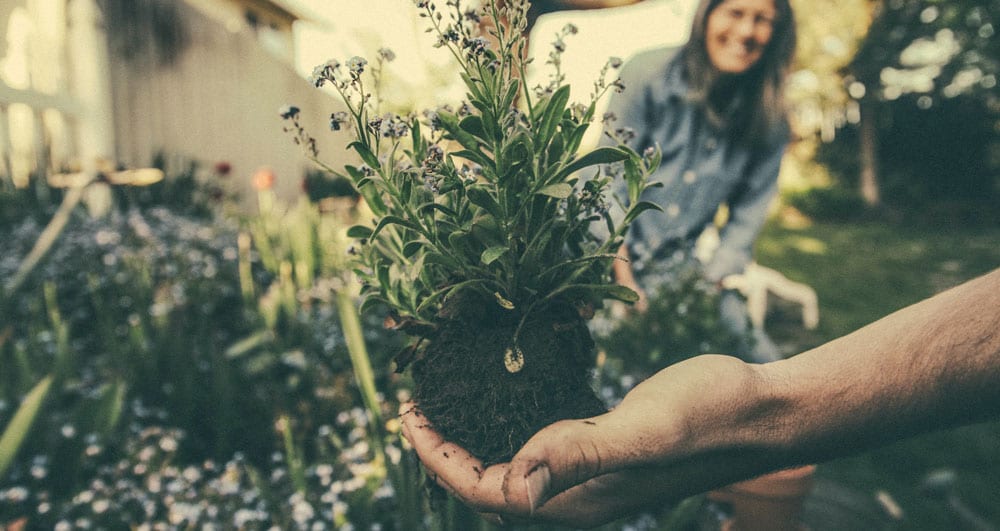How can community businesses keep up the ‘good work’ beyond COVID-19?
The corona pandemic has thrown down a challenge that is well beyond the scale of our normal experiences. How are community businesses able to deal with this crisis? In this joint blog, CUSP researchers together with colleagues from Locality, the national membership network for community organisations, are outlining some of the early frames of the joint research project looking at the idea of ‘good work’ in community business. This blog first appeared on the Power to Change website.

What does it mean to be a ‘good employer’ while sustaining a community business in these difficult times? Running any business is hard but running a community business is even harder, given the need to balance business viability with meeting social and community needs and being a good employer. The corona pandemic has thrown down a challenge that is well beyond the scale of our normal experiences. How are community businesses able to deal with this crisis? There is no easy fix, and each community business will need to find its own way of navigating through the crisis. Here we present five key questions to help community businesses think about how they can maintain their viability and become more resilient and able to respond to other challenges around sustainability and community wellbeing. These are crucial issues which are also relevant to many other businesses that have a strong environmental or a social purpose.
If these are also issues you are thinking about, please do share your thoughts and experiences via our short questionnaire, so that we can collate ideas and share them with other community businesses and supporting organisations.
Our research for Power to Change and CUSP, commencing in November 2019, focuses on what it means to be a good community business employer. Since the onset of the coronavirus pandemic and lockdown, Locality has been inundated with questions from members who are fighting their way through a jungle of information and messages from various sources that sometimes seem to conflict. Community businesses have been grappling with hugely complicated questions about how they can keep their organisations going at a time when income for many has plummeted and demand for services continues to rise.
1. How do you make the hardest decisions your community business has ever made?
There are many questions to balance. Should you try and keep the organisation as active as possible to help the community, even though it poses long-term financial risks? Or should you prioritise organisational survival and go quiet now, to ensure you are there to support the community to rebuild on the other side? What do these decisions mean for your staffing? Who should be furloughed and how long for? When should redundancy be considered? How do you share bad messages with staff you need to let go? Leaders and board members of community businesses need space to reflect on these important issues.
2. How do you maintain trust and engagement?
There will be lots of unspoken questions and worries. How do you maintain engagement with your staff to see you through these difficult times? Many community businesses have been thinking about the best ways of achieving and maintaining this. Communication is the key and establishing open communication channels that encourage staff and volunteers to express their own feelings and ideas about new ways of working will be critical. The same applies to volunteers—many organisations have experienced a reduction in their volunteer base while, at the same time, having become more dependent on the help of volunteers than ever. Many community businesses emphasise participatory decision making and democratic practices, which is also a source of resilience and strength, but how can this be continued and extended in these difficult times?
3. Can you adjust your operations to the new context?
COVID-19 has forced community businesses to become more creative than ever and in many cases resulted in diversification of services. Many have changed their routes to market to accommodate additional or changed demand, e.g. by setting up delivery services. Others have ramped up their technological capabilities to enable remote working and to reach out to community members who are suffering from isolation during lockdown (e.g. through online counselling).
Many community businesses have raised concerns that, in many respects, they are ‘falling through the net’ of government support. Yet, although the Coronavirus Job Retention Scheme (CJRS) is not tailored to the needs of organisations who have wanted to mobilise rather than mothball during the crisis, many community businesses have found ways to make it work for them. For example, they might have furloughed staff in “shutdown” areas of enterprise—like community cafes or room hire—while maintaining a reduced core team to provide outreach activities. Now new questions are emerging, as the CJRS moves into a new phase and reopening moves onto the agenda. There are not always straightforward answers.
4. How do you prepare for reopening your community business?
The bottom line is about whether you are legally able to open. From there, businesses are looking at their own individual situations and what is possible. Health and safety concerns for staff and visitors will continue to dominate daily operation for a considerable time to come. A big part of this is getting ideas from staff on how you might manage the ‘new normal’, including by listening to their concerns and anxieties and the scope for actions to help allay these.
How do you ensure you are financially viable when you need to restart? There currently is a high degree of uncertainty regarding the funding landscape post government support. Particularly the job retention scheme and (part-time) furloughing of staff create a challenging situation for community businesses.
5. What staffing models are needed for a COVID resilient organisation?
What have we learnt from the current situation and what can we do to prepare for the future? It is important to realise that the lives of staff and volunteers will continue to be affected for an uncertain period of time, particularly for those with family responsibilities. How can you plan your ‘comeback’ and be prepared for staff and volunteers having to isolate, getting ill or even a second lockdown. Do you need more agile working processes, more flexible and interchangeable job roles? How can you have conversations with staff about employment contracts, furloughing and, in the worst cases, redundancies? Understanding the rationale for such measures and how they fit into the concept of providing ‘good work’ is important for the survival of community businesses and their crucial role within many local economies.
However, there are some things that you might want to keep doing after all this doom and gloom. We have come across numerous encouraging examples of how community businesses are adapting to the challenges—sometimes by radically transforming their services, or in other cases by implementing some simple-low cost adaptations. As well as becoming much more ‘COVID-resilient’, these organisations are also likely to be better prepared for future sustainability and community wellbeing challenges.
Community businesses are driven by their missions. At times of scarce resources there are huge challenges around how to best supporting communities, including by being a ‘good employer’ and role model to other businesses, whether in the community or private sector. Reflecting on what it means to be a good employer and maintaining trust has never been more important. If these are issues you are thinking about, please do share thoughts and experiences via the Qualitrics website so that we can collate ideas and share with the network of likeminded organisations.
About the Autors
Graham Finegold and Ed Wallis work for Locality, the national membership network for community organisations. Dr Bianca Stumbitz, Professor Fergus Lyon and Dr Ian Vickers work for Middlesex University’s Centre for Enterprise, Environment and Development Research and the Centre for the Understanding of Sustainable Prosperity (CUSP). The authors of the blog are collaborating on a research project for Power to Change looking at the idea of ‘good work’ in community business.



